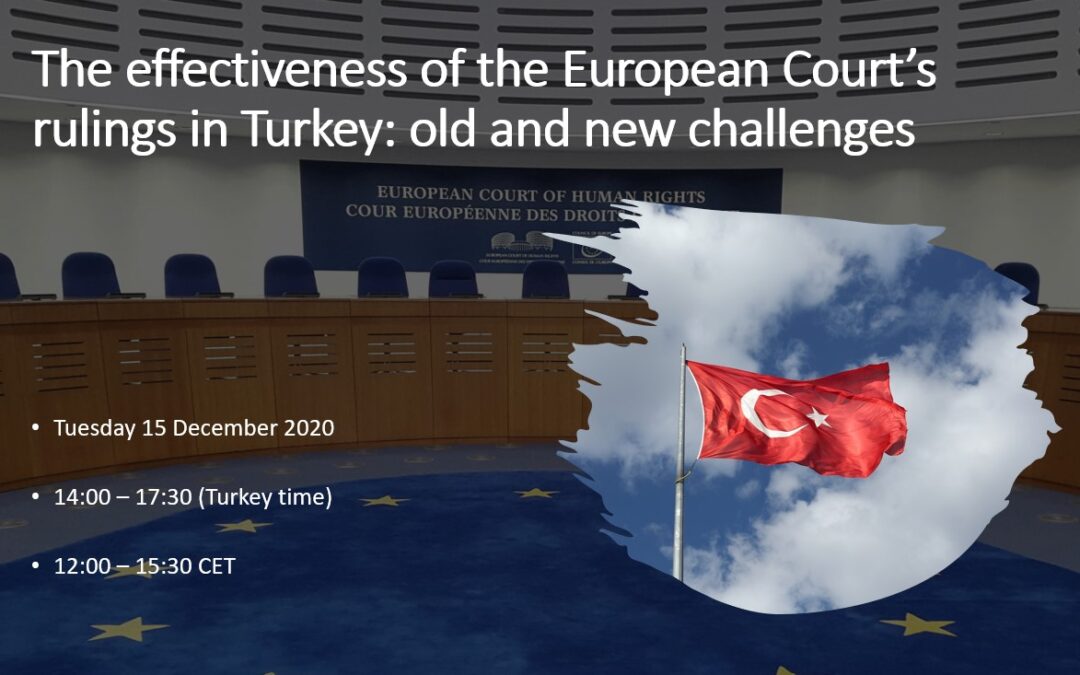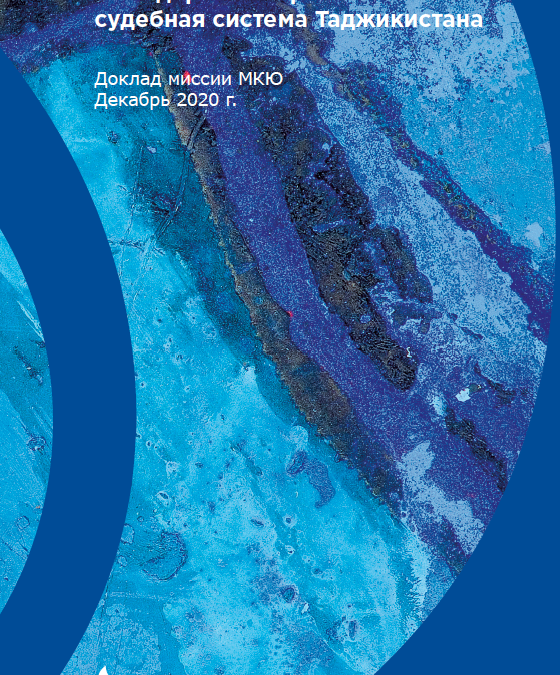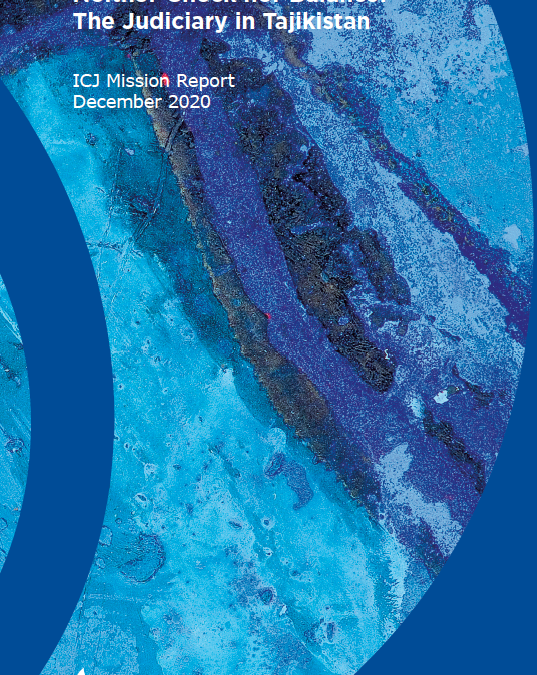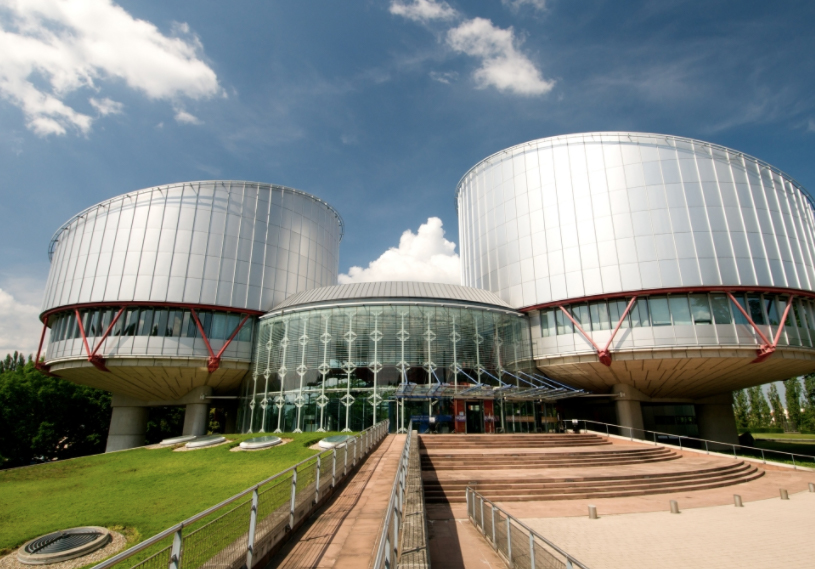
Dec 15, 2020 | Agendas, Events
Join ICJ and IHOP in this online conference in which Turkish and international experts will discuss the current challenges in Turkey to promptly and fully implement the judgments of the Court and how to improve the execution of judgments in the Turkish national system.
Turkey is the Council of Europe member state with the third highest number of European Court of Human Rights judgments awaiting execution, after the Russian Federation and Ukraine. As a Party to the European Convention on Human Rights and founding member of the Council of Europe, Turkey has committed to implement all rulings of the Strasbourg Court, yet the results of this commitment are far from clear.
Implementation of the European Court judgments is a key indicator in Europe of a country’s commitment to human rights and the rule of law, and failure to implement judgments fundamentally undermines access to justice for victims of human rights violations by watering down the impact of their litigation before the Court.
Failure to implement judgments through general implementation measures reforming laws, policies and practices, also leads to persistent, repeated violations of the States’ obligations under the European Convention on Human Rights. This problem has existed for many years in Turkey, leaving long-standing systemic human rights problems unsolved. Recently civil society has denounced the Turkish authorities’ attempts to circumvent the general application of certain new key rulings of the European Court.
In this conference, Turkish and international experts will discuss the current challenges in Turkey to promptly and fully implement the judgments of the Court and how to improve the execution of judgments in the Turkish national system:
– Justice Egbert Myjer, Former Judge at the European Court of Human Rights and Commissioner of the ICJ,
– Prof. Philip Leach, Professor of Human Rights Law at Middlesex University
– George Stafford, Director at European Implementation Network
– Emma Sinclair-Webb, Turkey Director, Human Rights Watch
– Kerem Altıparmak, ICJ Legal Consultant
– Ayşe Bingöl Demir, Turkey Human Rights Litigation Support Project Co-Director, Lawyer
– Prof. Başak Çalı, Professor of International Law, Co-Director of the Centre for Fundamental Rights at the Hertie School
The event will be introduced and moderated by Feray Salman, General Coordinator of the Human Rights Joint Platform (IHOP), Roisin Pillay, Director of the ICJ Europe and Central Asia Programme, and Massimo Frigo, Senior Legal Adviser of the ICJ Europe and Central Asia Programme.<
TO REGISTER WRITE TO: ihop@ihop.org.tr
IHOPICJ-ZoomConference-ExecutionECtHRTurkey-Agenda-2020-ENG (download the agenda in English)
IHOPICJ-ZoomConference-ExecutionECtHRTurkey-Agenda-2020-TUR (download the agenda in Turkish)
The event is part of the REACT project: implemented jointly by ICJ and IHOP, this project seeks to support the role of civil society actors in turkey in ensuring effective access to justice for the protection of human rights. This project is funded by the European Union. The views expressed in the event do not necessarily reflect the opinion of the EU.

Dec 11, 2020 | Доклад миссии установления фактов, Доклады, Новости, Публикации
Сегодня, опубликовав отчет о миссии, касающейся судебной системе Таджикистана, Международная комиссия юристов (МКЮ) призвала госорганы Таджикистана принять комплексные меры по реформированию судебной системы с тем, чтобы обеспечить ее независимость и уполномочить эффективно защищать права человека.
В отчете МКЮ Без сдержек и противовесов: судебная система Таджикистана дается подробный обзор организации и функционирования судебной системы при отправлении правосудия в Таджикистане. На основе анализа законов и информации, полученной во время миссии в страну МКЮ обнаружила некоторые слабости судебной системы и предложила рекомендации относительно институтов и процедур судебного управления.
«В Таджикистане имели место неоднократные попытки реформировать систему правосудия, как мы это смогли продемонстрировать в докладе, но к настоящему моменту они не привели к созданию судебной системы с сильными институтами самоуправления, которые были бы способны защищать и поддерживать судей в независимом применении права», – сказал Тимур Шакиров, старший правовой советник Программы МКЮ по Европе и Центральной Азии. «Среди многих иных вопросов, доклад указывает на проблему практически полного отсутствия оправдательных приговоров в Таджикистане, феномен, который можно рассматривать как лакмусовую бумажку судебной власти в ее способности выполнять свою роль самостоятельно», – подчеркнул он.
В докладе содержится ряд рекомендаций, в частности, в отношении руководящих органов судебной власти, системы назначения судей, судебной гарантии пребывания в должности и дисциплинарной системы для судей, с целью повышения независимости и эффективности судебных органов.
«Существует очевидная необходимость в осуществлении серьезной институциональной реформы для изменения системы саморегулирования, которая позволила бы осуществлять независимое отправление правосудия без формальной или неформальной проверки или одобрения со стороны руководства», – добавил Шакиров.
Отчет доступен на русском и английском языках.
Дополнительная информация:
В апреле и мае 2019 года МКЮ провела исследовательскую миссию по вопросам независимости судебной власти в Таджикистане. По завершении миссии МКЮ выразила озабоченность относительно независимости судей, а также функционирования судебных институтов и процедур в законодательстве и на практике.
Tajikistan-Judiciary-Publications-Reports-Mission report-2020-RUS

Dec 11, 2020
Today, as it publishes its mission report on the country’s judiciary, the ICJ calls on the Government of Tajikistan to adopt comprehensive measures to reform the judiciary, in order to ensure its independence and enable it to effectively protect human rights.
The ICJ report Neither Check nor Balance: the Judiciary in Tajikistan provides a detailed overview of the organization and functioning of the judiciary in administering justice in Tajikistan. Through an analysis of laws and information obtained during a mission to the country the ICJ has identified the weaknesses in the judiciary and made recommendations concerning the institutions and procedures of judicial governance.
“There have been many attempts to reform the justice system in Tajikistan, as we demonstrate in the report, but they have so far failed to result in a judiciary with strong self-governance institutions which are capable of protecting and supporting judges in independently applying the law,” said Temur Shakirov, Senior Legal Adviser of the ICJ Europe and Central Asia Programme.
“Among many other issues, the report points to the problem of an almost complete absence of acquittals in Tajikistan, which can be seen as a litmus paper of the judiciary’s ability to fulfil their role independently.”
The report provides a set of recommendations, in particular, in regard to the governing bodies of the judiciary, the system of appointment of judge, judicial security of tenure, and the disciplinary system for judges, with a view to strengthening the independence and effectiveness of the judiciary.
“There is a conspicuous need for a significant institutional reform to re-design a system of self-regulation that would allow for the independent administration of justice, without a formal or informal check or approval from superiors,” Shakirov added.
Background:
In April and May 2019, ICJ conducted a research mission on the independence of the judiciary in Tajikistan. Following the mission, the ICJ expressed concerns about the independence of individual judges as well as the functioning of judicial institutions and procedures in law and in practice.
Download
Tajikistan-Judiciary-Publications-Reports-Mission report-2020-ENG (full report in English, PDF)

Dec 8, 2020 | News
The ICJ with partners has intervened in European Court for Human Rights case concerning collective expulsions, including of children from Croatia.
The ICJ and partners (European Council for Refugees and Exiles, Dutch Council for Refugees, AIRE Center and the Hungarian Helsinki Committee) intervened today in the case S.B. v Croatia (Application No. 18810/19) at the European Court for Human rights.
The case concerns collective expulsion of migrants, including children, from Croatia to Bosnia and Herzegovina, and excessive use of force.
In the intervention, the organisations have highlighted international legal standards regarding the principle of non-refoulement and prohibition of collective expulsions. They also point to the need to take into account specific vulnerabilities of asylum seekers and children in order to guarantee enhanced safeguards afforded to them under international and EU law.
The organisations also note that in operations aimed at imposing restrictions on freedom of movement or deprivation of liberty to carry out an expulsion, the use of force should only be employed exceptionally and subject to strict necessity and proportionality requirements. The lack of resistance to law enforcement officials, per se renders force unlawful.
Please find the third party intervention here.

Dec 7, 2020 | News
The ICJ called today on the Council of the EU, the European Parliament and the European Commission to give a central role to the judiciary and ensure effective judicial remedies to prevent and redress human rights violations, in the draft Regulation on “Terrorist Content Online”.
The call comes as the final phase of the negotiations between the EU institutions on the draft Regulation begin this Thursday 10 December..
The ICJ is concerned that without procedures that incorporate core rule of law principles in the Regulation, there is a risk of improper and overreaching suppression of content that will undermine freedom of expression and other rights online.
Among the ICJ ‘s concerns with the proposal as it currently stands, is that it does not provide for mandatory judicial authorization and judicial review of orders by national authorities to remove content online deemed to be “terrorist”.
According to draft Article 4 of the proposal, national “competent authorities” would have the power to issue a decision requiring a hosting service provider to remove “terrorist” content or disable access to it within one hour from receipt of the removal order.
The ICJ considers that the power to issue removal orders to censor content online within an hour, without prior judicial authorisation, risks leading to excessive, arbitrary or discriminatory interference with the freedoms of expression, religion, assembly and association online as well as with rights to privacy and data protection of persons residing or present in EU Member States.
Under international and EU human rights law applicable to EU Member States, any restriction on these rights must be prescribed by law so that their application is clear and foreseeable, must be necessary and proportionate in the circumstances of the individual case, must be non-discriminatory and must allow access to an effective remedy. Furthermore, any person must have access to a court of law to access justice against breach of their rights.
The proposal, if approved without modifications, would allow – as yet undetermined – national authorities to order the removal of content online from host service providers, even if these are residing outside of their State or of the EU, without any authorisation from a court of law.
Furthermore, the definition of “terrorist” content relies heavily on a recent EU Directive on Combatting terrorism (2017/541) that allows for excessively wide criminalisation of forms of expression, such as the offence of “glorification of terrorism”.
The proposal is also likely to trigger a jurisdictional quagmire among EU Member States that will in the medium term be counter-productive to the objective of countering terrorism.
The power of a non-judicial authority of a Member State to issue orders binding upon public and private entities of another Member State, without prior judicial approval on the constitutionality and lawfulness of the order and of the rights in each jurisdiction, will seriously undermine mutual trust among jurisdictions, a core principle for the functioning of the EU Area of Freedom, Security and Justice. This is particularly important in light of the serious threats to the Rule of Law occurring in certain EU Member States that are already impairing the functioning of other EU criminal cooperation instruments, such as the European Arrest Warrant.
The ICJ therefore calls on all the actors heading the negotiations on the EU Regulation on “Terrorist Content Online” to adjust the current draft in order to provide for a central role of judicial authorities of EU Member States in the scheme of the Regulation by requiring designated “competent authorities” under Article 4 of the Regulation to be judicial authorities; to provide for judicial review, and to include adequate safeguards in the Regulation to ensure the protection of the human rights of any person subject to their jurisdiction.
Background
In 2018 the European Commission published a proposal of the EU Regulation on “Terrorist Content” Online. The aim of the Regulation is to establish uniform rules to prevent the misuse of hosting services for the dissemination of terrorist content online.
The Regulation has been since discussed by the Council of the EU and the European Parliament, who are currently in the final stages of negotiation in the EU legislative procedure in closed sessions among representatives of the European Parliament, the Council of the EU and the European Commission (the so-called trialogue procedure).
Contact:
Karolina Babicka, Legal Adviser, Europe and Central Asia Programme, e: karolina.babicka(a)icj.org
Massimo Frigo, Senior Legal Adviser, Europe and Central Asia Programme, e: massimo.frigo(a)icj.org, t: +41 79 749 99 49









